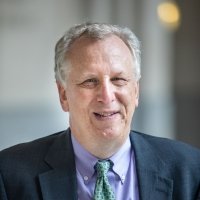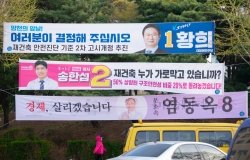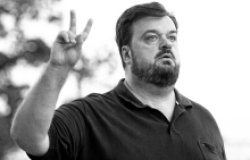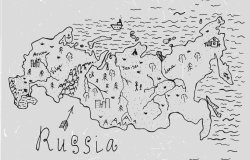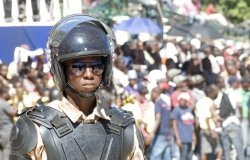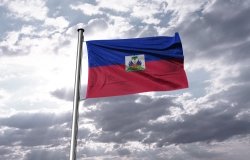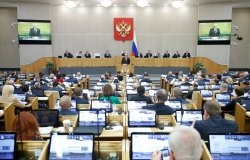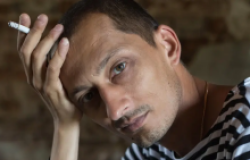Courtesy, Kathleen Kelly Smith
Reappraising the "Wild" 90s in Russia: Looking Back After 30 Years
Overview
In many ways, the reaction to the collapse of the Soviet Union and the turbulent decade that followed still influences the U.S.-Russia relationship. In light of the forthcoming 30th anniversary of the collapse of the Soviet Union, the Kennan Institute hosted a two-day event examining the differing American and Russian experiences of the 1990s and the immediate post-Soviet experience.
Conference participants engaged in a balanced conversation that addresses the highs and lows of this crucial decade and how it continues to influence present-day developments. By focusing on the individual experiences of our speakers with backgrounds in journalism, academia, policy, law, and business, the discussion offered a personal touch for both generations that lived and worked in Russia in the period and to a younger generation who did not experience the decade.
Conference Program
The conference was opened by Former Kennan Institute Director Blair Ruble on Wednesday, March 31, who will discuss scholarly exchanges and the new interaction between Russian and American scholars in the 1990s. The first day’s panel included American speakers who were on the ground in the 1990s and remain engaged with Russia. The U.S. panel included Jill Dougherty, Amb. Ken Yalowitz, Randy Bregman, and Andrew Kuchins, who addressed their experiences in journalism, the U.S. government, the business community, and the promotion of civil society.
The second panel on April 1 will address the Russian experience of the 1990s and how Russians now view the Western guidance that was provided. Was it realistic? Did the westerners understand the complexity of dismantling communism and establishing a new political and economic system? We were joined by prominent Russian politicians, journalists, and commentators, including Olga Malinova, Sergey Parkhomenko, Mikhail Fishman, Andrei Kozyrev, and Ekaterina Mishina.
More information on our speakers can be found HERE or by viewing their bios below.
Send a question to our panelists by email to kennan@wilsoncenter.org, tweet @KennanInstitute, or post on our Facebook page.
Selected Quotes
Blair Ruble
"Soviet studies had its own additional challenges in addition to being confronted by this general retreat from regional specific knowledge. Soviet studies attracted the contempt of other area studies specialists who viewed the field increasingly as little more than an extension of the U.S. intelligence and security communities and what we were trying to do at SSRC… was to really give an academic focus on what was happening in the Soviet Union, so I looked around and I saw what other area studies programs and what other area studies enterprises were about and the U.S. had very robust area studies on Latin America and Africa, Asia, Europe, but there was one major difference: U.S. Latin American studies, for example, was very robust and had numerous university centers and peer-reviewed journals and a major professional association, but the center of all regional studies on Latin America fundamentally rested in Latin America, this was true with all the regions… In this context, Soviet studies in the 1980s had one arm tied behind its back and this created difficulties for understanding what was happening."
"As field opportunities opened up, American scholars, especially graduate students in both fields, began examining Russia to expand the academic discussions in their own field that had been too limited by the U.S. experience. Western scholars examining Russia and a new cohort of Russian social scientists better trained in Western theory and methods began to study Russian society in ways that challenged our own social science orthodoxy… These exciting areas of research have largely been choked off by the ever-shrinking opportunity of for field research in Russia, although Russian scholars continue to make important contributions to our understanding of fields like health and migration."
Jill Dougherty
"I remember the euphoria, I think, I’d have to say of that period in 1991, the euphoria of the end of the Soviet Union and then I would say, at the end of the Soviet Union in December of 1991, I had gone back to the United States at that point. I’m back in my job as kind of the low man on the totem pole at the White House correspondence for CNN and I had to work Christmas, so Christmas 1991, as we all remember, and there I was on the front lawn of the White House watching the flag coming down the Kremlin, the Soviet flag, and the beginning of modern Russia and I must say, I cried during that period because it was very emotional, you know, the country that had really fascinated me, the language which I had studied since I was a teenager was all of a sudden no longer there and that concept was very difficult for me and obviously for Russians and Soviet citizens even more to understand."
"In 1997 as bureau chief, I saw the reality on the ground, I saw old women selling everything that they had on the street, I saw the little store in front of CNN which now is a Porsche dealer, but at the point was a little store and it had virtually nothing in it. I saw very little on the shelves in general, I saw people, hunger and I also saw, I think, the chaos of that early period and so this idea that, you know, Yeltsin as a democrat had changed things and was going to restore, Russia’s understanding of its, even this early period, pre-revolutionary, became very confused."
Ambassador Kenneth Yalowitz
"We arrived in Moscow on our second tour about a day and a half after the failed coup in August of 1991. Our first tour, I was in the Soviet Union 1975 to 1977, so I experienced, you know, the Cold War in place in Moscow and obviously it was both very, very interesting and a very, very difficult time to be there and agreed to come back to Moscow in 1991 largely because of the Gorbachev reforms and the wanting to be on the ground, you know, to see this process of change, which many of us thought we would probably never see before and the day after we arrived… we walked around and I think the only word I can use is we were dumbfounded, because nary a Soviet flag to be seen, Russian flags everywhere, but even more so, what struck us were the posters, the pictures, people talking about all of their grievances, whether it was Nagorno-Karabakh or Georgia, all the various ethnic groups that had territorial, ethnic territorial issue were there with placards showing atrocities and all these things and we looked at each other, the three Americans, and our first impulse was the KGB is going to be here in five minutes to break this whole thing up because that’s what we remembered from the 70s, but that never happened and I think it was at that moment that we recognized that something very profound was going on."
"What I witnessed was sort of the slow shift of power away from Soviet institutions of governance to Russia and just to give you one example, I went to see the Russian economics minister to talk about the visit of the deputy defense secretary who was going to be talking about conversion, we were already talking about helping all the large Russian military industrial complex convert to civilian production and I came in and I sat down with the minister and I explained, you know, what we were doing and he asked me who I was contacting and I told him and he said, don’t bother to contact these Soviet ministers any longer, if you want to get anything done on this visit, talk to us, talk to the Russian ministers and that was something, you know, that was very, very clear to me, it was the sort of the shift in power."
Randy Bregman
"When we moved to Moscow at the end of 1991 and when that infamous or famous flag was lowered, we had to make up law as we went along, there was Soviet law, some of which was incorporated into Russian law, but it was not really applicable to what was going on. The market economy was starting, our clients were getting into business relationships and they needed a legal framework for it and a legal framework that, in Soviet law, just didn’t apply. In fact, we ended up imagining what Russian contract law should look like or what Russian property law should look like, the basic foundations of commercial law had changed from those of a state-planned economy to a free market economy."
"One of the things we experienced was the Russians, mostly government officials, still relied on the existing Russian law. We had a case where one of our clients was trying to export oil from Russia and there was some great deal of uncertainty about what the tariff should be. There were conflicting regulations, some were higher and some were lower, so we went to the port and prepared to argue that the lower one should apply, of course, much to our surprise, the customs official there gave us a lower tariff even than we had imagined, so I asked him how did he come up with that rate and he said he pulled out a book which was a 1970 Soviet customs tariff book and he explained, he said, I can’t follow all these changes anymore so I’m going to just use the book I’m most familiar with."
Andrew Kuchins
"On the one hand, there was tremendous hope and excitement with the collapse of the Soviet Union, on the other hand, as an analyst, as an academic, as someone studying the Soviet Union, my best case scenario for this so-called transition was that it would take at least a couple of generations before we would be in a position to judge and that it was going to be extremely difficult, extremely difficult, and I think that both on the American and the Russian side, there were excessive expectations, at least, from the start."
"I’ll say something in the defense of Sovietology, which got so much heat for so-called not predicting the collapse of the Soviet Union. Well, there were a lot of good reasons not to predict the collapse of the Soviet Union and in fact, you know, Mr. Gorbachev certainly, when he came to power in 1985 was, had no plan that he would ultimately end up trying to implement these very, very, very radical economic and political reforms towards the end."
Olga Malinova
"The collapse of the Soviet Union that took place 30 years ago is often considered in Russia the starting point of what in Russian public discourse is labelled the “likhiy devyanosti.” It’s hard to translate into English in a single word because it is both the wild 1990s, hot 1990s, dashing 1990s, etc., though of course the troubles that are associated with this colloquialism started earlier… However, in Russian public discourse, the misery of the 1990s are often associated with the consequences of economic reforms that started in 1992. It brings us to the vagaries of memory; remembering and forgetting are rather selective and what and how we remember is actually largely connected to socially available frames and narratives. "
"The collapse of the Soviet Union and the collapse of the Soviet system, social, economic system, was the collapse of the habitual social world for millions of people. It really was an extraordinary and often traumatic experience… The very fact of pluralism of interpretations of what was going on was stressful for many people who were socialized with dominating ideology and many people felt lost in this chaotic sphere of multiple discourses."
Andrei Kozyrev
"The firebird is the hope, the belief that someday the Russian people will be able to catch the firebird, the firebird of democracy, and again, I still believe that that will happen because of that experience of August 1991. I saw how it works, so I think it’s the highest point in Russian history because it sets a precedent, now we can say there is a precedent of the Russian people rising to the occasion, standing up firm, and that’s very important."
"It was of course first a political revolution in a sense and Yeltsin was good at that because he decided to be anti-Communist and very determined and he guided actually the political revolution. On the economy, we all were very weak, including bright guys like Gaidar and others for a very simple reason: none of us, neither of them like Gaidar or the economic part of the government, had any exposure to real capitalism or anything close to real capitalism, so it was like it had been taken from the books."
Mikhail Fishman
"The first illusion [during the 1990s] that I think is worth talking about is the illusion that freedom actually equals democracy, that freedom is democracy. From 1990 onwards, for some few years, for some time, at least, Russia was as free as a state as it had ever been before. Personal freedoms, individual freedoms, freedom of speech, freedom of religion, freedom of conscience, freedom of movement, freedom of assembly, freedom of gathering up, you name it, all of these freedoms suddenly, out of the blue basically, became if not absolute, but [unprecedented] by the standards of Russian history."
"This I remember very well from my years back then, this image of the West, of colorful, tasty, juicy, rich, abundant everything, smells, neon lights, I remember it very well, and I think that this was this image, that as soon as you break up with Communism, you get there, you get what you’re seeing on television, and this image was in such contrast with reality back then."
Ekaterina Mishina
"The 1990s was the time when for the very first time in its history, Russia not only adopted and but officially developed such important concepts as rule of law, separation of powers, real federalism, not like the quasi-federalism of the times of the Soviet Union, that was the time when Russia completely changed its international presence, that was the time when the Cold War ended due to the joint efforts of many countries and Russia presented its different international image as the country who welcomed international law, who for the first time in its history embraced universally established fundamental principles of international law and established the priority of international law in its constitution."
"That was an amazing time when Russia had no political prisoners, when Russia had legal real political competition, real parliament, that was the time when freedom of speech, freedom of assembly, were not just written in the constitution… In the 1990s, we had real democracy, and that was a painful transition."
Sergey Parkhomenko
"What was the 90s in the Soviet Union? Because we have to start our analysis even before the 90s, in ‘87, ‘88, the time of the beginning of a series of political reform in Gorbachev’s Soviet Union and what was this time regarding information, regarding the media, regarding the journalists, even global journalism and global information. The late Soviet Union, and even the beginning of independent Russia time, was a time when on the world map existed a place which was a haven of informational and political jobs, because it was a place of the easiest and fastest and shortest access of information and to the source of information."
"At this time, we saw in Moscow the creme de la creme of world political journalists from the United State, from Europe, from Japan, and all across the globe, and it was very known, very respected journalists or young journalists who had just begun his professional career.. It was a battlefield of the most important news agencies in the world."
Speakers
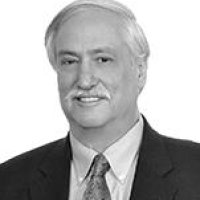
Randy Bregman
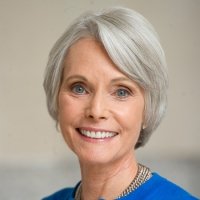
Jill Dougherty
Former CNN Foreign Affairs Correspondent

Andrew Kuchins
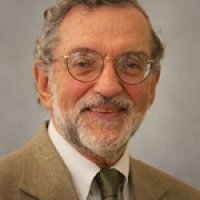
Hon. Kenneth S. Yalowitz
Former U.S. Ambassador to the Republic of Belarus from 1994-1997 and to Georgia from 1998-2001; former Career Diplomat and Member of the Senior Foreign Service, U.S. Department of State; former Director of the Dickey Center for International Understanding, Dartmouth College
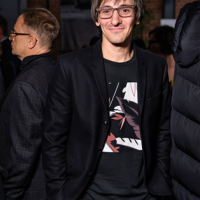
Mikhail Fishman
Russian Journalist and Filmmaker

Andrei Kozyrev
Former Foreign Minister of Russia, 1991-1996
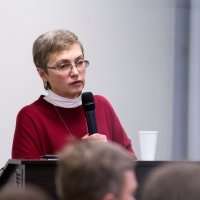
Olga Malinova
Chief Research Fellow, Institute of Scientific Information for Social Sciences, Russian Academy of Sciences, and Professor, Higher School of Economics

Ekaterina Mishina
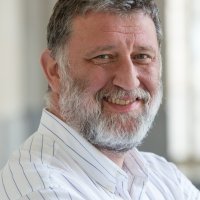
Sergey Parkhomenko
Journalist, publisher, organizer of civic projects
Hosted By

Kennan Institute
The Kennan Institute is the premier US center for advanced research on Russia and Eurasia and the oldest and largest regional program at the Woodrow Wilson International Center for Scholars. The Kennan Institute is committed to improving American understanding of Russia, Ukraine, Central Asia, the Caucasus, and the surrounding region though research and exchange. Read more
Thank you for your interest in this event. Please send any feedback or questions to our Events staff.

